The Environmental and Health Impact of Leaf Blowers: A Call for Change
- November 29, 2023
- 1 comment
Explore the impact of leaf blowers on natural ecosystems and public health. Understand how these modern tools disrupt the age-old cycle of leaf shedding and soil enrichment, and the ensuing environmental and health concerns.
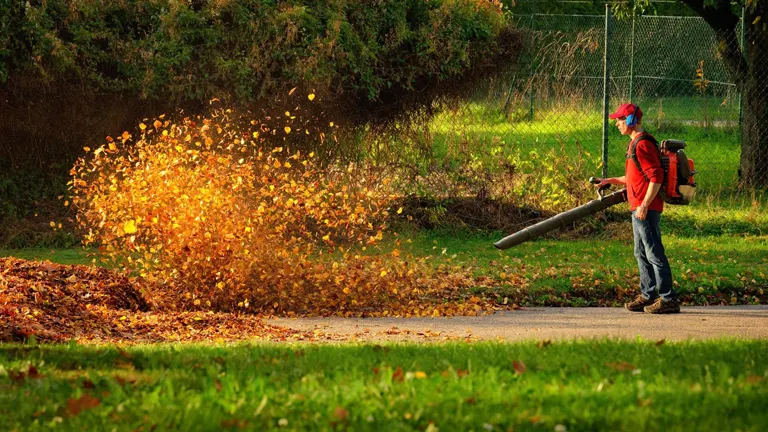
For centuries, the natural process of trees shedding leaves has played a vital role in ecosystems, providing shelter for wildlife and enriching the soil. This annual cycle, a hallmark of autumn, has not only been crucial for maintaining ecological balance but also for fostering biodiversity. Leaves that fall to the ground decompose, returning vital nutrients to the soil, and offering a habitat for numerous small creatures. However, the advent of leaf blowers in modern times has significantly disrupted this natural cycle. While these tools offer efficiency in garden maintenance, their widespread use raises substantial environmental and health concerns. The impact of leaf blowers extends beyond mere convenience, posing a challenge to the delicate balance of our ecosystems and the well-being of our communities.
The Pervasive Use of Leaf Blowers
Every year, the United States witnesses the extensive use of approximately 11 million leaf blowers, each capable of unleashing winds up to 200 miles per hour. While these devices excel at their primary task of clearing leaves, their broader implications are far-reaching and multifaceted. The operation of leaf blowers significantly disrupts natural ecosystems. This disruption is not limited to the mere physical displacement of leaves; it extends to impacting the myriad of small creatures that depend on leaf litter for survival. This natural debris serves as a crucial habitat and food source for various insects and microorganisms, playing a vital role in the biodiversity of our ecosystems.
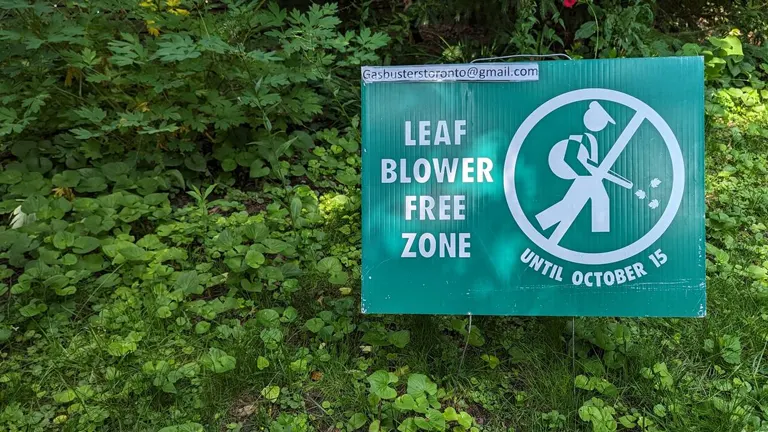
Moreover, the widespread use of leaf blowers has escalated noise pollution, an environmental concern that often doesn’t receive the attention it deserves. The persistent, high-decibel noise generated by these machines not only affects human well-being, causing stress and hearing issues, but also has a detrimental impact on wildlife, interfering with their communication, breeding, and natural behaviors.
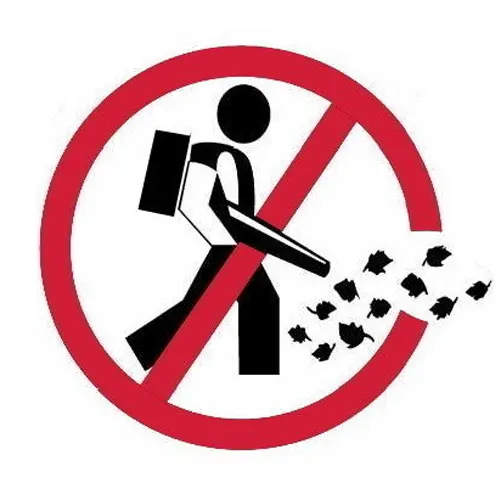
In response to these concerns, several U.S. regions, including Washington, D.C., Miami Beach, Florida, and Evanston, Illinois, have taken decisive steps. These areas have implemented bans or stringent restrictions on the use of gas-powered leaf blowers. Such regulatory measures are a testament to a growing recognition of the need to balance technological convenience with environmental and public health. These actions also reflect a shift in societal values, where the health of the environment and the well-being of communities are being prioritized.
Furthermore, these changes have sparked a broader conversation about sustainable practices in lawn care and garden maintenance. They encourage individuals and professionals alike to explore alternative methods that are more in harmony with the environment. Options such as electric leaf blowers, manual raking, or even leaving the leaves to naturally decompose and enrich the soil are considered viable and eco-friendly alternatives.
The movement against the indiscriminate use of leaf blowers is not just about reducing noise or protecting the environment; it’s part of a larger narrative about rethinking our relationship with nature. It calls for a deeper understanding and respect for the intricate web of life that thrives in our backyards and urban green spaces. As this awareness grows, it paves the way for more responsible choices and practices that align with the principles of sustainability and ecological balance.
Increased Awareness and Regulatory Actions
The onset of the COVID-19 pandemic in 2020, and the subsequent lockdowns, unexpectedly played a pivotal role in altering public perception regarding the tranquility of natural environments and the intrusive nature of leaf blowers. As people found themselves confined to their homes, many began to appreciate the serenity and calm of their immediate natural surroundings. This newfound appreciation, however, was often marred by the disruptive noise of leaf blowers, leading to an increased awareness of their impact on both the environment and quality of life.
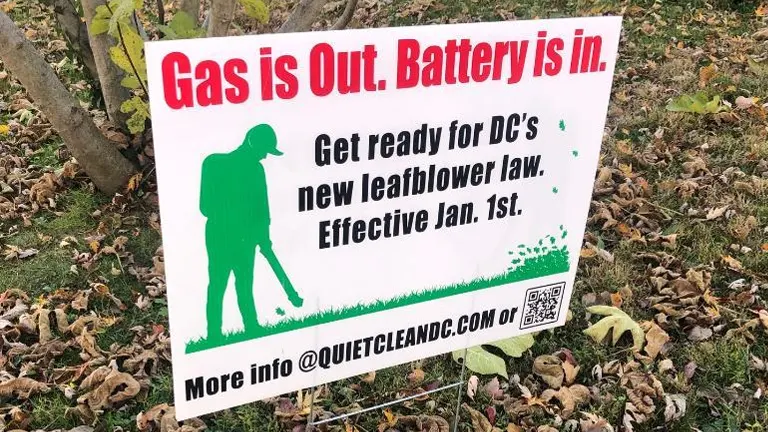
This shift in public consciousness has been instrumental in driving regulatory changes across the United States. As a result, over 200 towns have now implemented various restrictions on the use of leaf blowers. These legislative actions have been significantly influenced by the efforts of advocacy groups such as Quiet Communities, which have been at the forefront of raising awareness about the adverse effects of noise pollution and championing the need for more environmentally friendly practices in lawn and garden maintenance. These developments mark a significant step towards reconciling the need for efficient lawn care with the imperative to preserve the tranquility and health of our natural and living environments.
Environmental and Health Impacts
The environmental and health impacts of gas-powered leaf blowers are far more significant than often realized. In just one hour of operation, these machines emit pollutants equivalent to what a car would produce on a journey from Los Angeles to Denver. This startling comparison highlights the substantial contribution of leaf blowers to air pollution. The emissions from these devices include a range of harmful pollutants such as benzene, volatile organic compounds (VOCs), and nitrogen oxides, all of which are known to have detrimental effects on air quality and public health.

Apart from the air pollution, the operation of gas-powered leaf blowers also generates low-frequency noise, which is more than just a mere annoyance. This type of noise, often pervasive and penetrating, has been linked to serious health issues. Studies have shown that continuous exposure to low-frequency noise from leaf blowers can lead to increased risks of heart attacks and strokes. This is due to the stress and disturbance caused by the noise, which can have a profound impact on cardiovascular health. Therefore, the use of gas-powered leaf blowers presents a dual threat: they not only pollute the air we breathe but also potentially endanger heart health through their disruptive noise emissions.
Historical Context and Current Debate
The history of leaf blowers dates back to the 1940s, with their initial design intended for agricultural purposes. However, it was in the post-World War II era that these machines found a new role in suburban lawn care. As residential areas expanded and the desire for well-maintained lawns grew, leaf blowers became increasingly popular as a tool for efficient yard maintenance. This shift from agriculture to residential use marked the beginning of the widespread adoption of leaf blowers, particularly in the United States.
Today, the use of leaf blowers is at the center of a significant debate that encompasses both environmental and economic dimensions. On one hand, environmental concerns are at the forefront, with issues such as air and noise pollution being major points of contention. The environmental impact of leaf blowers, especially those powered by gas, has led to increased scrutiny and calls for regulation or outright bans in various regions.
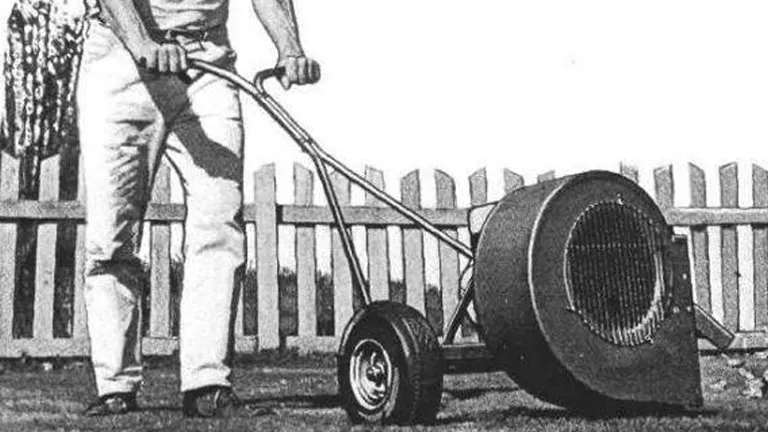
On the other hand, the debate also considers the economic implications for landscaping professionals. Leaf blowers, known for their efficiency in clearing leaves and debris, are a staple in the landscaping industry. Restrictions or bans on these tools could have a substantial impact on the operations and financial viability of landscaping businesses. This aspect of the debate highlights the need for a balanced approach that addresses environmental concerns while also considering the economic realities faced by those in the lawn care and landscaping sectors.
Thus, the discussion around leaf blowers is not just about their environmental footprint but also about finding sustainable solutions that can support both ecological health and economic livelihoods.
Challenges in Transitioning to Electric Blowers
The transition from gas-powered to electric leaf blowers, while environmentally beneficial, presents several financial and practical challenges for landscapers. This shift is not as straightforward as it may seem, primarily due to the differences in the operational capabilities and costs associated with electric blowers.

One of the primary challenges is the initial investment required for electric blowers. These devices, although increasingly efficient and eco-friendly, can be significantly more expensive upfront compared to their gas counterparts. This cost factor poses a substantial hurdle for many landscaping businesses, especially small-scale operators who may not have the financial flexibility to invest in new equipment.
Additionally, the practicality of using electric blowers in a professional setting raises concerns. Electric blowers, depending on their design and battery life, may not always match the power and endurance of gas blowers. This can affect the efficiency and productivity of landscaping work, as electric blowers might need frequent recharging or battery replacements throughout the day. Such operational constraints could potentially increase the time and labor required to complete landscaping tasks.
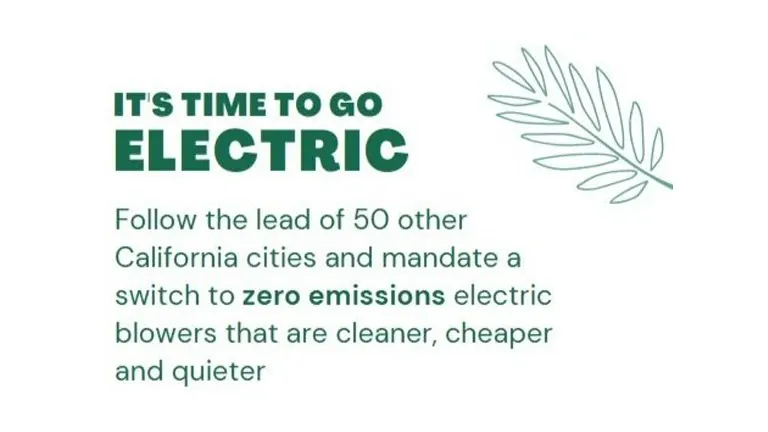
Recognizing these challenges, some states, like California, are taking proactive steps to ease this transition. Financial assistance programs have been introduced to help landscaping businesses offset the costs of adopting electric blowers. These initiatives not only support landscapers in making environmentally friendly choices but also play a crucial role in reducing the overall carbon footprint of lawn maintenance practices.
Despite these challenges, the move towards electric blowers is a positive step towards sustainability. It aligns with broader environmental goals, such as reducing air pollution and noise levels, and represents a significant shift in how landscaping is approached in terms of environmental responsibility. As technology advances and more support becomes available, it is likely that the transition to electric blowers will become increasingly feasible for landscaping professionals.
Conclusion
Leaf blowers, though convenient for lawn maintenance, pose serious environmental and health risks. The growing trend of imposing restrictions and bans on these devices is a step towards addressing these issues. However, a balanced approach is necessary, considering the economic impact on landscaping professionals. As we move towards more sustainable lawn care practices, it’s crucial to evaluate the benefits of technology against the need to preserve our natural environment and community health.
FAQs
- Why are leaf blowers considered harmful to the environment?
Leaf blowers, especially gas-powered ones, emit high levels of pollutants like benzene, nitrogen oxides, and volatile organic compounds, contributing significantly to air pollution. They also disrupt natural ecosystems by forcefully removing leaves that are crucial for soil health and wildlife habitats. - How do leaf blowers impact human health?
The pollutants emitted by gas-powered leaf blowers can contribute to respiratory problems, heart disease, and other health issues. Additionally, the noise generated by these devices is linked to increased stress, hearing loss, and cardiovascular risks. - What are the benefits of switching to electric leaf blowers?
Electric leaf blowers produce significantly less noise and air pollution compared to gas-powered models, making them a more environmentally friendly and health-conscious choice. - Are there any laws regulating the use of leaf blowers?
Yes, several cities and states have implemented regulations or bans on gas-powered leaf blowers due to their environmental and health impacts. These regulations vary by location, with some areas imposing time-of-day restrictions, while others have outright bans. - How can I minimize the impact of leaf blowers while maintaining my yard?
Consider using electric leaf blowers, which are less harmful, or alternative methods like raking or manual sweeping. Composting leaves instead of blowing them away can also contribute positively to your garden’s ecosystem. - What are some alternatives to using leaf blowers for yard maintenance?
Alternatives include raking, using a broom for smaller areas, or mulching leaves directly on the lawn, which can provide nutrients to the soil. - Can leaf blowers affect wildlife?
Yes, the noise and disturbance caused by leaf blowers can disrupt local wildlife, particularly small creatures that rely on leaf litter for habitat and food sources. - How significant is the noise pollution from leaf blowers?
Leaf blowers can generate noise levels that exceed safe hearing thresholds, contributing to noise pollution in residential areas. This can affect the quality of life for residents and disrupt local wildlife. - Are there any health risks for landscaping professionals using leaf blowers?
Landscaping professionals are at risk of hearing damage due to prolonged exposure to the loud noise of leaf blowers. They are also exposed to the harmful pollutants these machines emit. - Is there a movement or advocacy for the reduction of leaf blower usage?
Yes, organizations like Quiet Communities and local environmental groups are advocating for reduced leaf blower usage and promoting awareness about their environmental and health impacts. They encourage the adoption of quieter and cleaner alternatives for lawn care.



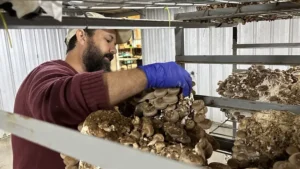
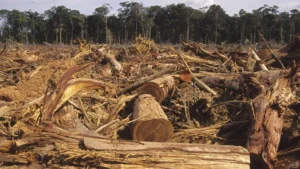

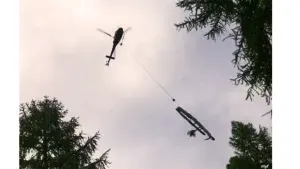

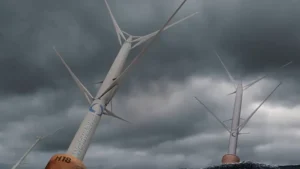
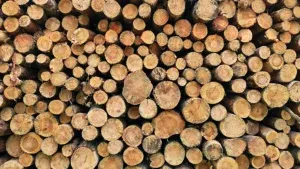


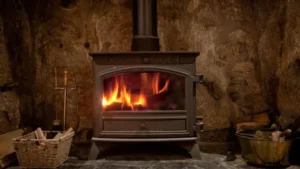

Quiet clean Alliance is a national organization advocating for the elimination of gas leaf blowers.
huntington calm
January 9, 2024 11:45 pm